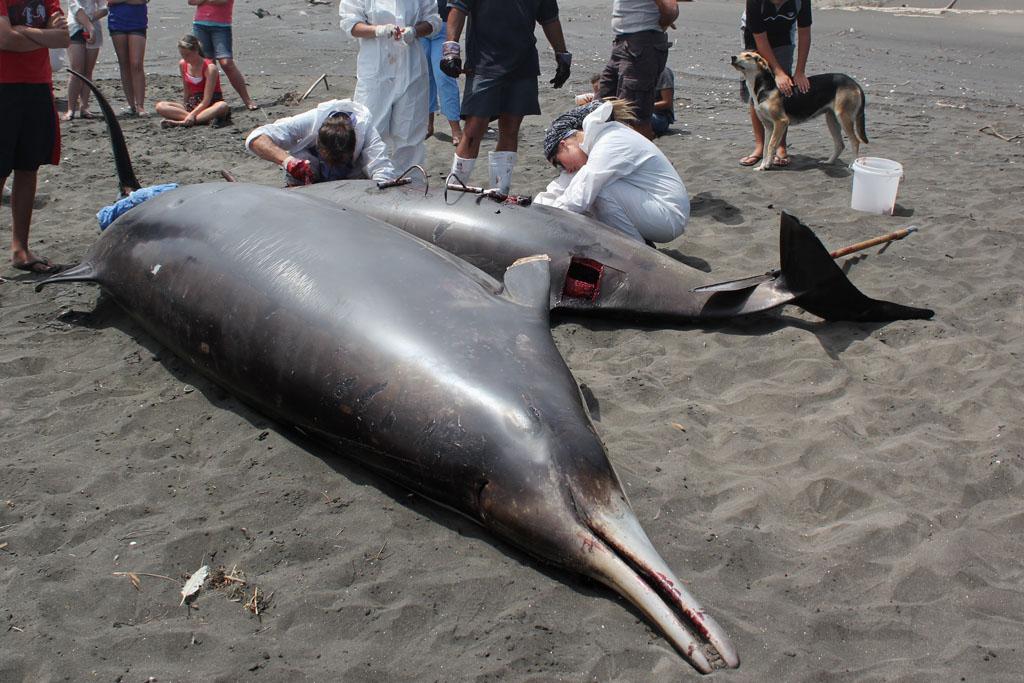This is how the US Navy tortures whales to death
University researchers conduct an autopsy on a female beaked whale stranded in Port Waikato, New Zealand.
Sound literally tears through a whale.
Imagine: First, a deafening sound penetrates your whole body. It's so loud you can hardly see straight. You have no idea where you are.
Then, air bubbles start to form in your blood and tissue. The bubbles grow, causing incredible pressure and searing pain.
Finally, your cell walls can't take it anymore. They rip apart and you hemmorhage, or suffer a stroke.
That's what the US Navy does to whales when they use sonar in their vicinity, which they did yesterday just south of Crete.
Seven Cuvier's beaked whales were stranded yesterday off Crete following naval exercises in the area, according to the Natural Resources Defense Council (NRDC).
These were found alive, but that isn't always the case.
Mass strandings of whales, particularly beaked whales, are strongly correlated to naval sonar exercises. Many of the whales surface dead, some with perforated ear drums or blood coming from their eyes and ears.
Althought the US military has acknowledged the risks to whales involved in sonar testing, it continues testing in vulnerable areas. The US Navy announced last year that it intended to ramp up sonar testing over the next five years.
Activists cede that the sonar tests are crucial to military activity, but ask that they not be conducted in areas that have lots of whales. Sounds simple enough, doesn't it?
Nukes get tested too, but you don't see that happening in downtown Boston.
What makes this stranding of beaked whales near Crete particularly tragic is that it happened in an area that activists had specifically listed as one to avoid, according to the NRDC.
Last year, a proposed conservation agreement included a map of places in the Mediterranean and Black seas where sonar training should be avoided.
"One area on the map is off southeastern Crete — exactly where the new mass stranding occurred — around a highly sensitive marine area known as the Hellenic Trench. But Greece fought the recommendation, and it wasn’t adopted," Michael Jasny wrote for the NRDC.
We want to hear your feedback so we can keep improving our website, theworld.org. Please fill out this quick survey and let us know your thoughts (your answers will be anonymous). Thanks for your time!
